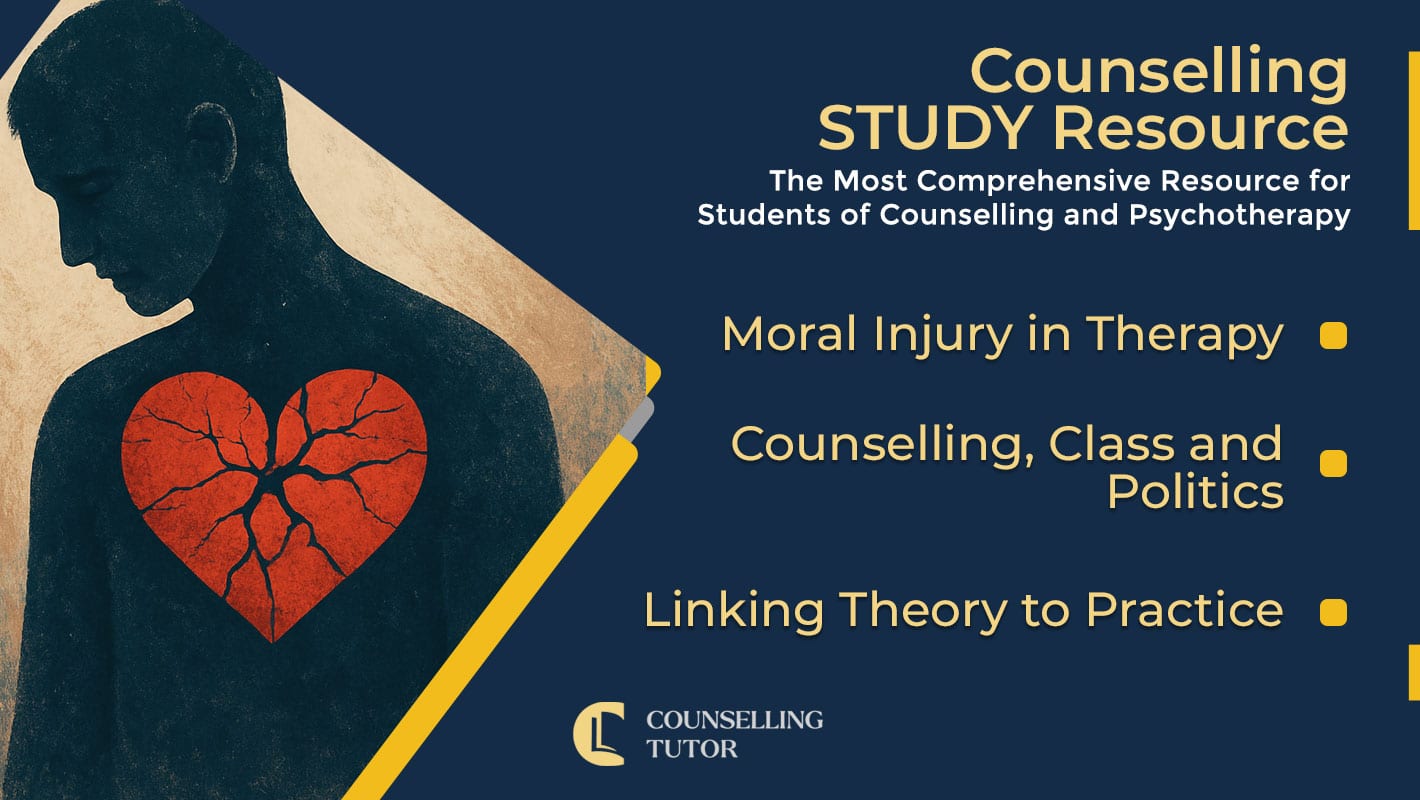See Counselling Skills Used in Real Sessions by Qualified Therapist
Real Sessions – Real Presentations – Real Skills
Gain the competence and confidence to use counselling techniques effectively!

In Episode 351 of the Counselling Tutor Podcast, Rory Lees-Oakes and Ken Kelly take us through this week’s three topics:
Firstly, in ‘Ethical, Sustainable Practice’, they explore the concept of moral injury in therapy – how it shows up in the therapy room and how to work with it ethically and compassionately.
Then in ‘Practice Matters’, Rory speaks with counselling student and writer Nell Ash, whose upcoming book addresses how class and politics influence both therapy and training.
And finally, in ‘Student Services’, Rory and Ken discuss how to link theory to practice – bridging what you learn in the classroom with what happens in real-life therapy sessions.
Rory and Ken explore moral injury in therapy – a hidden, yet powerful emotional wound that often emerges in counselling work.
Some main points:

Real Sessions – Real Presentations – Real Skills
Gain the competence and confidence to use counselling techniques effectively!
In this week’s ‘Practice Matters’, Rory speaks with Nell Ash, a trainee counsellor and writer exploring class as an often-ignored factor in therapeutic work.
Key points of this discussion:

On-demand access to a rich lecture library covering theory, skills, and professional development for counselling students—Mapped to the UK awarding body criteria
“The Student Library has been BRILLIANT, I can’t recommend it enough!
It has been a lifeline in helping me prepare for practice and my first clients. If you’re considering it, go-for-it, it’s absolutely worth it!”
Kelly – Graduated and now in practice.
Rory and Ken share guidance for students working to apply counselling theory in real-life client sessions.
Main points for this section:
Moral Injury in Therapy

Get on-demand Certified CPD that is implementable in your practice
